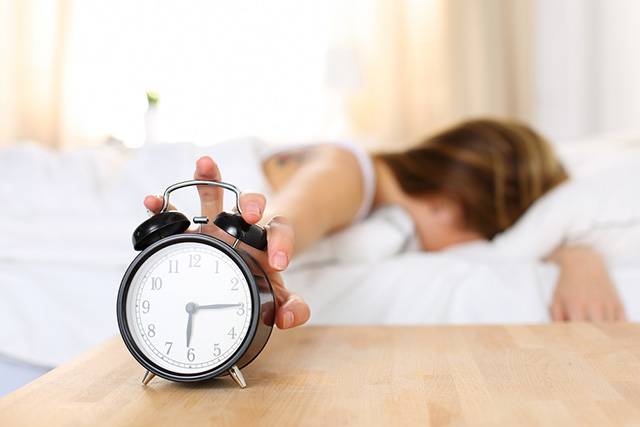We spend close to a third of our lives in a state of rest in order for our bodies to rejuvenate and heal both mentally and physically. Getting the proper amount of sleep each night is critical to how you process your daily events, and when you begin to miss out on crucial moments they can add up to create a sleep debt.
Over time missed sleep can result in sleep deprivation, which can have some very serious effects. The early stages of sleep deprivation can be easy to miss unless you know what to look for, but knowing about the warning signs in advance can help you be aware of what you need to do to avoid a more severe reaction. If you have been struggling with getting a good night’s sleep, but haven’t been sure it’s worth worrying about, this is definitely an article worth reading.
How Much Sleep Do You Need?

What is Sleep Debt?
Sleep debt is another way to describe sleep deprivation and is measured in two varying ways: partial and total, which means you have gone a full 24 hours without sleep. Sleep is a restorative activity and is very important to your body, and when it is lacking for any reason these missed hours will begin to wear on your system.

Long work hours, personal responsibilities, and increased use of electronics have all attributed to chronically missed sleep. Over time this can lead to some severe health issues, and in younger children, delay both the growth of their brains and bodies.
How Does Sleep Deprivation Occur?
As mentioned, sleep deprivation begins the first night you are unable to get the rest you need. If this only occurs once in awhile it may not be noticeable over long periods of time as you catch back up within the next few days.
Partial sleep deprivation is when you are sleeping each night, but not getting the full amount of sleep you need. Total sleep deprivation is when you have been awake for a full 24 hours. Both create a sleep debt which can become difficult to recover from.
What Dangers Are Associated with Sleep Deprivation?
If you have missed out on sleep in the past you already know that early signs of sleep deprivation include being a bit groggy, yawning, irritability, and issues with focus are common the next day in varying degrees. But there is so much more to consider, especially if you are chronically missing out on the hours you deserve.
— Brain Processes

— Increased Risk of Accidents

 — Weakened Immunity
— Weakened Immunity
When tired, your body is less able to fend off illnesses. Those who struggle to get the sleep they need are more likely to catch common illnesses, or may find they are unable to recover as they should.
— Increased Risk of Chronic Disease

 — Physical Changes
— Physical Changes
Chemicals that signal your brain to stop eating turn off when you are tired, leading to overeating binges. You also may see a decrease in your sex drive as hormones begin to drop.

— Poor Balance
Your brain and body may not be quite ‘in tune’ with one another as they used to be, resulting in poor balance and a loss of coordination.
The Stages of Sleep Deprivation
When your body is unable to cycle through sleep stages and you cannot get a restorative rest, you begin to enter into the stages of sleep deprivation. Most doctors agree this is defined by two stages, both expressed through a loss of sleep. The first stage deals with the loss of rest each night, like a pick chipping off time over days, weeks, or months. The second stage represents the complete lack of sleep.
— Chronic Sleep Deprivation
Also called a partial sleep debt stage, chronic deprivation occurs when you are not getting the full 7 to 9 hours of sleep each night your body requires to function properly. You may experience some minor discomfort the next day if you only do this once or twice a week, but most adults fall into a chronic habit which adds up from day to day. Occasionally you may be able to catch up over a weekend, but it is more likely that you will carry your debt forward from week to week.
— Acute Sleep Deprivation
Total sleep deprivation, or an acute loss of sleep, occurs when you are unable to rest in a full day. Most people are unable to stay awake for more than 24 to 48 hours, and the longer you are up the more dangerous it becomes. Trying to recover from acute stages is very difficult as you have to try and gain back those hours night after night.
What You Can Do to Avoid Sleep Deprivation
You can try and stave off falling into a stage of debt by keeping a strict bedtime routine and rising at the same time every morning. When you do notice you may be experienced a lack of sleep, head to bed earlier, or sleep in an extra hour or two if possible to try and balance things out.
When you can’t avoid losing sleep due to responsibilities, insomnia, pain, injury, or anything else out of your control, speak with your healthcare provider to see what can help. Also, try and keep track of what sleep you are losing to try and make it up little by little.
Conclusion
Getting the right amount of sleep is important for your health no matter what your age is. Be sure to find time for the proper rest you deserve so help avoid falling into a stage of sleep deprivation. If you do find you are struggling with a chronic loss, attempt to ‘buy’ back those hours of sleep you lost to help you stay healthy both in mind and body. If you are forced to enter into an acute stage of loss, take care to start focusing on your sleep needs to help recover in the healthiest way possible.



 — Weakened Immunity
— Weakened Immunity — Physical Changes
— Physical Changes


